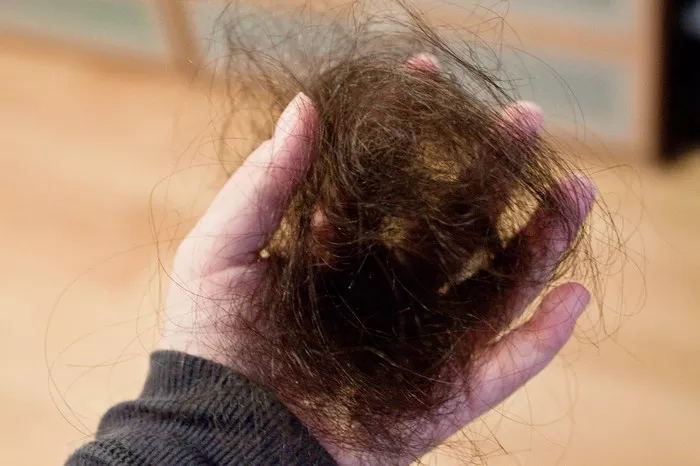Hair loss, medically known as alopecia, is a common side effect experienced by many cancer patients undergoing treatment. The physical changes associated with hair loss can be emotionally distressing, impacting self-esteem and quality of life. Understanding why hair loss occurs during cancer treatment, the types of treatments that can lead to it, and how to manage it can help patients cope better throughout their cancer journey.
Overview of Hair Loss in Cancer Treatment
Hair loss is a well-known side effect of cancer treatment, particularly chemotherapy. Chemotherapy drugs target rapidly dividing cells, which include cancer cells but also hair follicle cells. This disruption to the hair growth cycle leads to hair thinning or complete hair loss, known as alopecia.
In addition to chemotherapy, other cancer treatments can also cause hair loss. Radiation therapy, commonly used to target and destroy cancer cells, may result in hair loss in the treated area. Certain hormone therapies, targeted therapies, and immunotherapies can also lead to hair thinning or loss as they affect different aspects of cell growth and division.
Types of Treatments Known to Cause Hair Loss
Chemotherapy: Chemotherapy drugs circulate throughout the body, affecting not only cancer cells but also healthy cells, including those in the hair follicles. The extent of hair loss can vary depending on the type and dosage of chemotherapy drugs used.
1. Radiation Therapy: Radiation therapy directs high-energy beams to specific areas of the body affected by cancer. Hair loss occurs in the treatment area because the radiation damages the hair follicles.
2. Hormone Therapy: Some hormone therapies, such as those used to treat breast or prostate cancer, can lead to hair thinning or loss as they alter hormone levels in the body.
3. Targeted Therapy: Targeted therapies focus on specific molecules involved in cancer growth and progression. While they may not always cause complete hair loss, they can lead to hair thinning or changes in hair texture.
4. Immunotherapy: Immunotherapy works by harnessing the body’s immune system to fight cancer cells. While less common, certain immunotherapy drugs may result in hair loss as a side effect.
Managing Expectations and Emotional Support
Hair loss can have a profound emotional impact on cancer patients. It serves as a visible reminder of their illness and treatment, affecting self-image and confidence. Providing emotional support and coping strategies is crucial for patients facing hair loss during cancer treatment.
1. Coping Strategies: Encouraging patients to express their feelings and concerns about hair loss can help them cope better. Connecting with support groups or counseling services can provide valuable emotional support and a sense of community.
2. Managing Expectations: Setting realistic expectations about hair loss before treatment begins can help patients mentally prepare for the changes. Assure them that hair loss is often temporary and that their hair will likely grow back after treatment ends.
3. Supportive Care: Offering practical tips for managing hair loss, such as using gentle hair care products, avoiding heat styling tools, and protecting the scalp from sun exposure, can help minimize discomfort and maintain scalp health.
Practical Tips for Hair Care Before, During, and After Treatment
Before Treatment:
- Consider cutting hair short or shaving the head before treatment starts to ease the transition and make hair loss less noticeable.
- Use mild shampoos and conditioners to keep the scalp clean and moisturized.
During Treatment:
- Avoid harsh hair treatments such as coloring, perming, or chemical straightening, which can further damage fragile hair.
- Use a soft-bristled brush or wide-tooth comb to minimize hair breakage and scalp irritation.
After Treatment:
- Be patient with hair regrowth, as it may take several months for hair to return to its pre-treatment thickness and texture.
- Protect the scalp from sun exposure by wearing hats or scarves when outdoors, especially if hair is still thin.
In conclusion, hair loss is a common side effect of cancer treatment, but it is often temporary and reversible. Understanding why hair loss occurs, managing expectations, and providing emotional support are essential aspects of caring for patients undergoing cancer treatment. By offering practical tips for hair care and coping strategies, healthcare providers can help patients navigate the challenges of hair loss with greater resilience and confidence.
FAQs
1. What stage of cancer makes you lose hair?
Hair loss in cancer patients is not necessarily linked to a specific stage of the disease. Instead, it’s often a side effect of certain cancer treatments, particularly chemotherapy. However, in some cases, advanced stages of cancer may coincide with hair loss due to the aggressive nature of the disease and the impact it has on the body’s overall health.
2. Which cancer drugs cause hair loss?
Several chemotherapy drugs are known to cause hair loss as a side effect. These include commonly used medications like doxorubicin, paclitaxel, and cyclophosphamide. The severity and extent of hair loss can vary depending on the specific drug regimen and individual factors.
3. Can cancer make your hair fall out without chemo?
While chemotherapy is a well-known cause of hair loss in cancer patients, other cancer treatments such as radiation therapy and targeted therapy can also lead to hair loss, although it might not be as widespread or severe as with chemotherapy. Additionally, the cancer itself, especially in advanced stages, can sometimes indirectly contribute to hair loss due to its effects on the body’s overall health.
4. Do all cancer treatments cause hair loss?
Not all cancer treatments cause hair loss. For instance, surgeries to remove tumors or cancerous tissues typically do not result in hair loss unless the procedure directly affects the scalp or hair follicles. However, many chemotherapy drugs, radiation therapy sessions targeting the head or neck area, and certain targeted therapies can lead to varying degrees of hair loss as a side effect. It’s essential for patients to discuss potential side effects with their healthcare providers before starting treatment and explore options for managing hair loss if it occurs.


